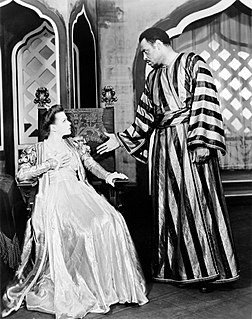A Quote by Edward McKendree Bounds
The preacher's sharpest and strongest preaching should be to himself. His most difficult, delicate, laborious, and thorough work must be with himself.
Related Quotes
A good stylist should have narcissistic enjoyment as he works. He must be able to objectivize his work to such an extent that he catches himself feeling envious and has to jog his memory to find that he is himself the creator. In short, he must display that highest degree of objectivity which the world calls vanity.
Man—every man—is an end in himself, not a means to the ends of others; he must live for his own sake, neither sacrificing himself to others nor sacrificing others to himself; he must work for his rational self-interest, with the achievement of his own happiness as the highest moral purpose of his life.
Good work is no done by "humble" men. It is one of the first duties of a professor, for example, in any subject, to exaggerate a little both the importance of his subject and his own importance in it. A man who is always asking "Is what I do worth while?" and "Am I the right person to do it?" will always be ineffective himself and a discouragement to others. He must shut his eyes a little and think a little more of his subject and himself than they deserve. This is not too difficult: it is harder not to make his subject and himself ridiculous by shutting his eyes too tightly.
The fact that labour is external to the worker, i.e., it does not belong to his intrinsic nature; that in his work, therefore he does not affirm himself but denies himself, does not feel content but unhappy, does not develop freely his physical and mental energy but mortifies his body and his mind. The worker therefore only feels himself outside his work, and in his work feels outside himself.
One receives as reward for much ennui, despondency, boredom -such as a solitude without friends, books, duties, passions must bring with it -those quarter-hours of profoundest contemplation within oneself and nature. He who completely entrenches himself against boredom also entrenches himself against himself: he will never get to drink the strongest refreshing draught from his own innermost fountain.
A thorough-paced knave will rarely quarrel with one whom he can cheat: his revenge is plunder; therefore he is usually the most forgiving of beings, upon the principle that if he come to an open rupture, he must defend himself; and this does not suit a man whose vocation it is to keep his hands in the pocket of another.
How does one chip off the marble that doesn't belong? ... That comes about through five things: humility, reverence, inspiration, deep purpose, and joy. No great man has ever wise-cracked his way to greatness. Until one learns to lose one's self he cannot find himself. No one can multiply himself by himself. He must first divide himself and give himself to the service of all, thus placing himself within all others through acts of thoughtfulness and service.
The actor must know that since he, himself, is the instrument, he must play on it to serve the character with the same effortless dexterity with which the violinist makes music on his. Just because he doesn't look like a violin is no reason to assume his techniques should be thought of as less difficult.
If the artist does not fling himself, without reflecting, into his work, as Curtis flung himself into the yawning gulf, as the soldier flings himself into the enemy's trenches, and if, once in this crater, he does not work like a miner on whom the walls of his gallery have fallen in; if he contemplates difficulties instead of overcoming them one by one ... he is simply looking on at the suicide of his own talent.
A Christian should put away all defense and make no attempt to excuse himself either in his own eyes or before the Lord. Whoever defends himself will have himself for his defense, and he will have no other. But let him come defenseless before the Lord and he will have for his defender no less than God Himself.


































